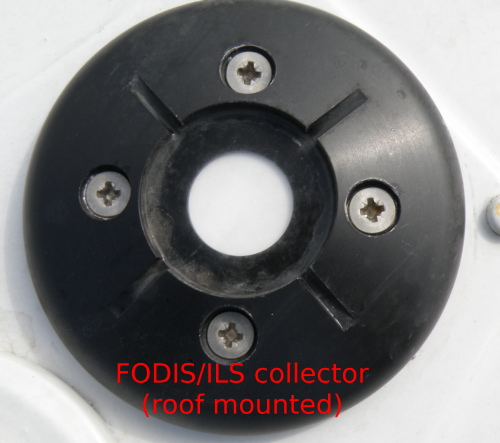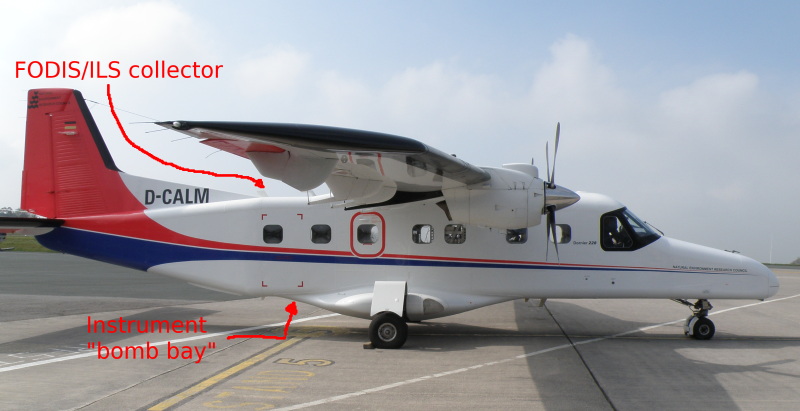| Version 6 (modified by mggr, 16 years ago) (diff) |
|---|
Handling FODIS/ILS data
The aircraft has a downwelling light sensor, with a cosine collector mounted on the roof bringing light via a fiber optic cable to the instruments. Both CASI and Eagle have systems for measuring this light:
ILS
The NERC ARSF CASI System also incorporates an Incident Light Sensor (ILS) measuring downwelling radiation at the aircraft; this is Lumogen coated for enhancement of the blue response below 450 nm.
FODIS
The Eagle instrument also incorporates a downwelling radiation sensor, similar to the CASI ILS, called the Fiber-Optic Downwelling Irradiance Sensor (FODIS).
Processing
Details on processing the ILS/FODIS data are in the azgcorr manual (to a limited extent - we'll improve this as soon as we get the manual text..). Basically it's an extra data vector in the HDF files, called CAils, with one pixel of upwards-looking data per downwards-looking scanline.
The vector should be present in all CASI and Eagle HDFs, but will be garbage in any flight where the sensor wasn't connected (fibre optic cable from the CCD to the roof-mounted collector). If the data are correct, they should resemble the solar spectrum.
It will also be garbage in any Eagle HDFs preceding mid 2008 as the cable wasn't connected (may be present in some Ethiopia flights) and the processing wasn't working (fixed as of June/08, backprocessing available on request).
Note that due to a bug in ENVI (?), it appears that one gets odd spiky results from directly viewing the HDF vector. You must extract it first with:
azexhdf -Be fodis.bil -d CAils youreagle.hdf
Physical layout
DCALM's downwelling light collector (prior to cleaning!):
Side view of DCALM, showing location of downwelling light collector:
Attachments (2)
-
dcalm_fodis_collector.jpg
(80.5 KB) -
added by mggr 18 years ago.
DCALM's downwelling light collector (prior to cleaning!)
-
dcalm_side_view.jpg
(96.0 KB) -
added by mggr 18 years ago.
Side view of DCALM, showing location of downwelling light collector
Download all attachments as: .zip

